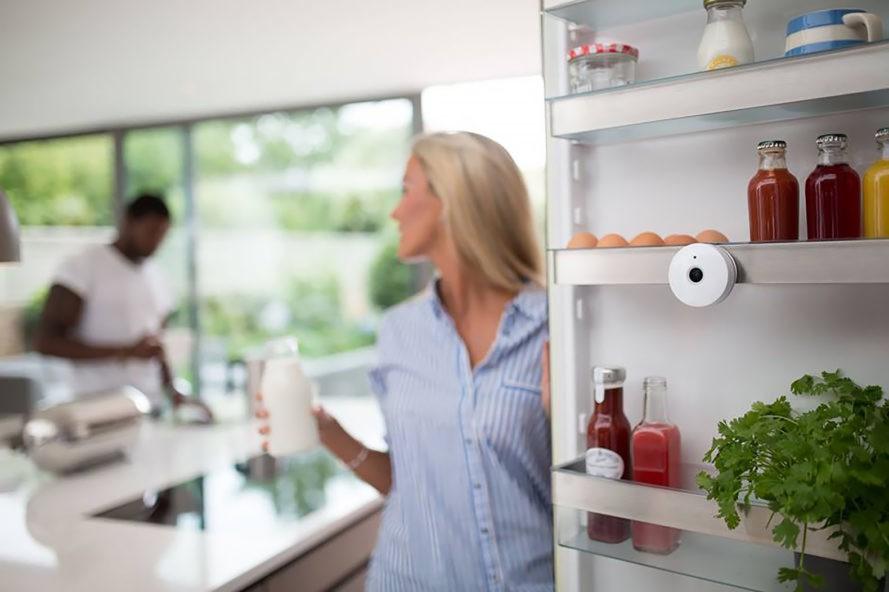New Refrigerator Camera Aims To Cut Food Waste In Your Kitchen
A new smart camera will provide an affordable solution to reducing food waste in your home kitchen. Set to release next month, the Smarter FridgeCam is just $127, and can mount in any refrigerator.
Updated May 22 2019, 10:24 a.m. ET
It's estimated that we throw away around one-third of the total food produced in the world. And it's easy to forget that waste starts in the home, with your wilted lettuce or bruised peach. And while smart technology has been attempting to solve this problem with connected fridges and waste-fighting apps, the most powerful technology has been largely at a price point above what the average person can afford.
Enter the Smarter FridgeCam, a wireless camera that mounts inside your refrigerator and monitors exactly what's in your fridge, when it might expire, what recipes to cook tonight to use that stuff up and what you're almost out of. While this app-connected, waste-fighting, personal recipe-and shopping list-maker sounds like your average smart fridge, consider the fact that the Smarter FidgeCam costs just £99 ($127.53) and can be mounted in any fridge.
To compare, the average smart fridge costs around $8000. Additionally, Smarter says the FridgeCam could save users as much as $500 every year by avoiding food waste.
The company producing the camera, Smarter, was founded in 2014 by entrepreneur Christian Lane. Smarter produces other connected kitchen appliances, including the popular iKettle, a remotely operated kettle that boils water before you get home or wake up in the morning.
Now with a focus on something as big as food waste, the FridgeCam does even more than just monitoring your personal fridge; it also collects data from each fridge it's mounted in, which goes into Smarter’s shared consumer database. Over time, the camera will get smarter based on its user's habits. It is set to release next month.
“The supermarkets tell us that the way we shop has fundamentally changed. People are shopping little and often and using different shops," Lane told The Guardian. "The more we developed and trialed this technology, the more we found that it could not just help reduce food waste but it also encourages people to shop in a smarter and more efficient way.”
